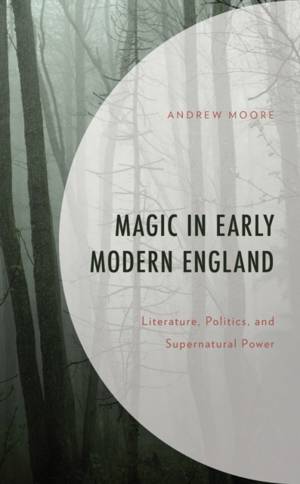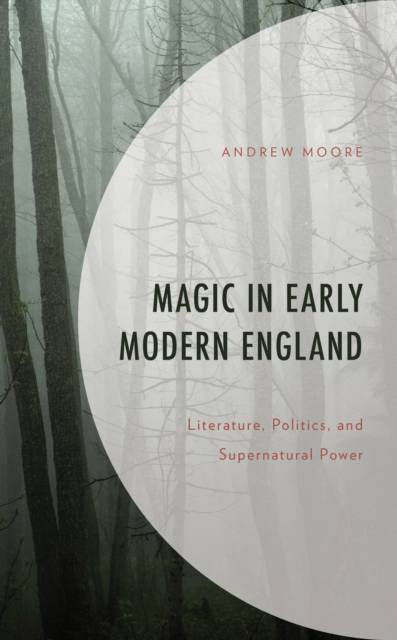
- Afhalen na 1 uur in een winkel met voorraad
- In januari gratis thuislevering in België
- Ruim aanbod met 7 miljoen producten
- Afhalen na 1 uur in een winkel met voorraad
- In januari gratis thuislevering in België
- Ruim aanbod met 7 miljoen producten
Omschrijving
This book reconsiders the place of magic at the foundations of modernity. Through careful close reading of plays, spell books, philosophical treatises, and witch trial narratives, Andrew Moore shows us that magic was ubiquitous in early modern England. Rather than a "decline of magic," this study traces a broad cultural fascination with supernatural power. In the sixteenth and seventeenth centuries, poets, philosophers, jurists, and monarchs debated the reality and the morality of magic, and, by extension, the limits of human power. In this way, early modern English writing about magic was closely related to the scientific and political philosophical writing from the period, which was likewise reimagining humanity's relationship to nature. Moore reads Thomas Hobbes's Leviathan alongside contemporary writing by the notorious witch hunters Matthew Hopkins and John Stearne. He reminds us that Francis Bacon's scientific works were addressed to King James I, whose own Dæmonologie insists on the reality of witchcraft. The fantastical science fiction of Margaret Cavendish, he argues, must be understood within a tradition that includes works like Christopher Marlowe's Doctor Faustus and the peculiar autobiography of criminal astrologer Simon Forman. By considering these disparate works together Moore reveals the centrality of magic to the early modern project.
Specificaties
Betrokkenen
- Auteur(s):
- Uitgeverij:
Inhoud
- Aantal bladzijden:
- 188
- Taal:
- Engels
- Reeks:
Eigenschappen
- Productcode (EAN):
- 9781498575515
- Verschijningsdatum:
- 15/05/2023
- Uitvoering:
- Hardcover
- Formaat:
- Genaaid
- Afmetingen:
- 152 mm x 229 mm
- Gewicht:
- 449 g

Alleen bij Standaard Boekhandel
Beoordelingen
We publiceren alleen reviews die voldoen aan de voorwaarden voor reviews. Bekijk onze voorwaarden voor reviews.









